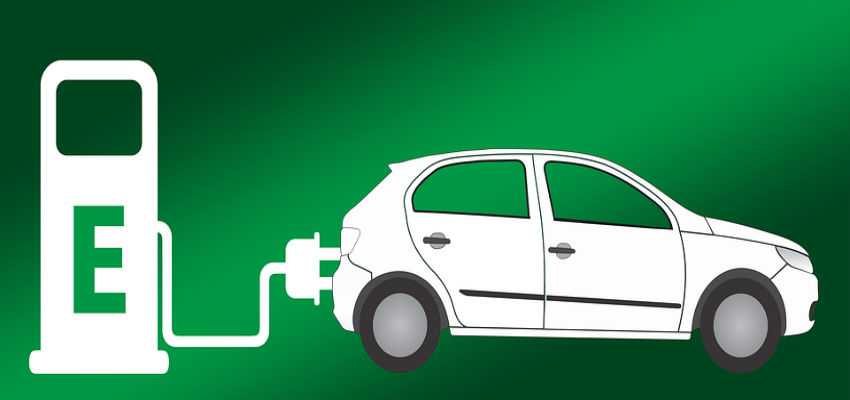
The Emergence of theElectric Vehicle Sectorin India:•
The transition to Electric Vehicles(EV’s)in India under Prime Minister Narendra Modi’sGovernment is heading to a complete switch to electric mobilityby 2030.•NITIAayog (formerly Planning Commission of India), the Government’s think-tank, is spearheading this transition to cleaner and zero-emission form of transportation.•NITIAayog has proposed that only EV’sshould be sold after 2030.•Under the National Electric Mobility Mission Plan 2020, there is an ambitious target to achieve 6-7 million sales of hybrid and EV’sby the year 2020.•On 31 March 2017, Governmentof Indiaannounced that the entire rail network in the country will be electrified by 2022.•Governmentof IndiastartedFaster Adoption and Manufacturing of Hybrid andElectric vehicles (FAME) schemeunder its National Electric Mobility Mission Plan which provides incentives for purchasing EV’s.•A Motor Vehicles (Amendment) Bill was passed by the Parliament in 2015, which established battery-powerede-rickshawsas a valid form of commercial transport in India.•Uttar Pradesh leads the electric race with nearly 1,39,000 battery-operated vehicles, followed by 76,000 EV’sin Delhi, according to Union Minister for Road Transport and Highways.•Delhi Government recently approved 1000 Electric buses to be used in Delhi’s public transport system.•According to a draft proposal introduced in the parliament, all the IC engine powered two-wheelers and three-wheelers in India starting 2025 for two-wheelers and 2023 for three-wheelers will be banned making it a rule to move to EV’sonly. •NITIAayog led by Prime Minister, Narendra Modi plans to ordertaxi aggregatorssuch asUberandOlato convert 40 per cent of their fleet of cars to electric by April 2026.•Ola Electric Mobility Pvt. Ltd has raised about USD 250 million from SoftBank Group Corp. The funds will help Ola Electric achieve its goal of bringing one million EV’son roads by 2021.•Phase-II of FAME Scheme encourages faster adoption of EV’sby way of offering upfront incentive on purchase of EV’sby establishing the necessary charging infrastructure for EV’s.•In hermaiden budget speech, the new finance minister, Nirmala Sitharaman, announced income tax exemptions for prospective buyers of EV’s and a reduced GST, from 12% to 5%. The move is effectively aimed at increasing EV’sownership across consumer classes.•With tax deduction of Rs 1.50 lakh on EV’sloan interest, and no custom duty on certain parts of EV’s, this will give affordable and environment friendly public transportation options to the common man, hence moving the country to a green energy economy.•The Department of Heavy Industry and Public Enterprises of the Government of Indiaissueda second major expression of interest to prep the country’s electric mobility infrastructure, this time asking companies for a proposal to set up 1,000 electric charging stations across the country.•MG Motor ties up with Fortum to set up charging stations in India.
•Fortum will install 50 KW CCS and Chademo DC fast public charging stations for EV’sacross showrooms in five citiesin India, by September 2019. •Battery Swappingis being considered as the way forward for Early Adoption ofEV’sin India.•Battery Swapping technology will eliminate wait time for charging, make better use of land, reduce the size of batteries in vehicles and will give an increased available run time.•Key players like SmartE have battery swapping stations at Delhi NCR and are working in partnership with Delhi Metro, Sun Mobility, Panasonic, Exicom and Amara Raja batteries to operate swapping stations.•Ola has its own battery swapping unit at Gurgaon for e-rickshaws. The station has around 14 battery-swapping units with 20 battery packs per unit powering 100+ e-rickshaws.•Stressing the need for a robust last-mile connectivity, the Centre has urged the Delhi government to release funds to procure 427electric busesbyDelhi MetroRail Corp (DMRC).•The Centre has sought proposals from state transport departments for the deployment of 5,000electric buses, under Phase-II of theFAMEscheme, so as to boost green public transport.•By 2020 alone, Hero Electric (one of HSA’s key clients)plans to sell 100,000 e-bikes. •Electric vehicle start-up SmartE has raised Rs 100 crore from Japanese major trading house Mitsui & Co in a Series B funding round.The company offers first-and last-mile connectivity to over 100,000 ridersevery day on a shared basis (four riders) to and from various metro stations in the National Capital Region (NCR), mostly on a fixed route and for just Rs 10 per passenger.•Government of India’s push for encouraging faster adoption of EV’shas the potential to be a big foot-in-the-door opportunity for Chinese companies that have developed expertise at manufacturing electric vehicles and allied infrastructure back home.The Indian EV’ssectorcould cumulatively add about USD 300 billion by 2030, according to NITIAayog. This is a massive opportunity for a wide range of Indian businesses for both large and small as well as in entire value chain sector manufacturing, trading and services.Adding to this business potential is a significant thrust on electric mobility by the Indian government and a favorablemarket condition. EV’ssector will soon become an inevitable force in the auto market.HSA Advocates has been thelegal advisors to NITIAayogon preparing the model concession agreement (MCA) for supply, operation and maintenance of electric buses in urban areas on public private partnership (PPP).With the Government’s aim to reduce carbon footprint from transportation, HSA was engaged for structuring and drafting the MCA as well as engaging in stakeholder conferences.
Recent Queries
-

what is section of IPC 234??
6 year(s) ago- priya


